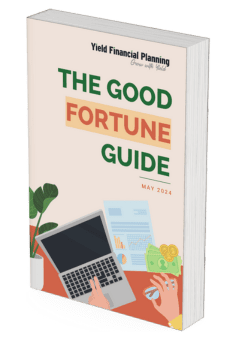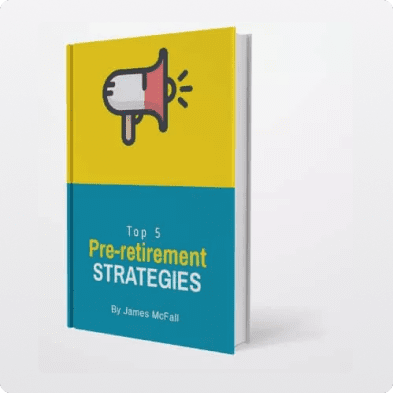As your super balance grows, the flexibility of SMSF investment options can be alluring. Managing your SMSF means, you get to choose from most investments available, and the right choices can have a big impact on your financial future. With so many SMSF investment options to choose from, it’s important to find the right mix for your unique situation. In this blog, we’ll explore various SMSF investment options and give you tips on how to build a strong, diversified portfolio that’s tailored just for you.
1. Direct Property Investment
Investing in property is a favourite for many SMSF trustees. Whether it’s residential, commercial, or industrial real estate, property can offer significant benefits. The potential for capital growth is a major draw, as property values often appreciate over time. Additionally, rental income from tenants can provide a steady cash flow, which can be reinvested or used to cover the costs associated with managing the property. There are also tax advantages to consider, such as depreciation benefits and negative gearing, which can make property investment more attractive.
However, property investment requires substantial upfront capital and ongoing expenses such as maintenance, insurance, and property management fees. Moreover, property is not as liquid as other assets, meaning it can take time and incur costs to sell. If you’re considering borrowing within your SMSF to purchase property, it’s vital to understand the borrowing rules and ensure compliance with all regulations.
2. Shares and Equities
Investing in shares and equities is a popular choice for SMSF trustees due to their potential for high returns through capital gains and dividends. Shares offer diversification across various industries and sectors, which can help spread risk and enhance rewards. They are also relatively liquid, allowing you to easily buy and sell them on the stock market.
However, shares come with their own risks, such as market volatility and the potential for significant price fluctuations. Effective investment management is needed to navigate these risks and make informed decisions. Diversifying your investments and staying updated on market trends can help mitigate these challenges and achieve your financial goals.
3. Bonds and Fixed Interest Securities
Bonds are a way to lend money to corporations or governments in exchange for regular interest payments and the return of your principal at maturity. They are generally seen as safer investments compared to equities, offering a steady income stream and helping to diversify your portfolio.
However, bonds typically offer lower returns than equities, which might not meet the growth needs of some SMSF trustees. Bond prices can also fluctuate with interest rates – rising rates generally lead to falling bond prices. Additionally, there is credit risk; if the issuer defaults, you might lose your investment. It’s crucial to assess the creditworthiness of issuers and choose bonds that fit your investment goals and timeline.
4. Managed Funds and ETFs
Managed funds and Exchange-Traded Funds (ETFs) allow you to pool your money with other investors to invest in a diversified portfolio managed by professionals. These funds can provide broad exposure to different asset classes, including stocks, bonds, and commodities, offering a level of diversification that might be difficult to achieve on your own. Professional management means that experienced fund managers make investment decisions on your behalf, potentially enhancing returns through their expertise and resources. ETFs, in particular, offer the additional benefit of being traded on the stock exchange, providing liquidity and flexibility.
One consideration of managed funds and ETFs is the management fees, which can impact your overall returns. Additionally, you have less control over specific investment decisions, as fund managers make those choices. Market risk is another factor, as the value of these funds can fluctuate with market conditions.
To navigate these challenges and select the right funds for your SMSF, think about seeking advice from an experienced financial advisor. They can help you choose funds with a strong track record, reasonable fees, and assets that align with your risk profile and investment goals.
5. Cash and Term Deposits
Cash investments and term deposits are considered the safest investment options, offering stable but typically lower returns. These investments provide high liquidity, allowing you easy access to your funds when needed. They also come with low risk, as the principal is protected, and returns are predictable. This simplicity makes them easy to manage and understand, which can be appealing for more conservative investors or for those seeking a safety net within their SMSF.
The main challenge with cash and term deposits is the low returns they offer, which may not keep up with inflation over time. For the best results, think of cash and term deposits as part of a broader investment strategy. Look for the best interest rates and terms to get the most out of these investments, and make sure they fit into a diversified portfolio that aligns with your overall financial goals. There are managed cash funds that can often provide the best returns also.
6. Precious Metals
Investing in physical gold, silver, or other precious metals can provide a hedge against inflation and economic uncertainty. They have intrinsic value and can add a layer of stability to your SMSF.
While investing in precious metals has its benefits, there are also a few challenges to keep in mind. For starters, physical metals need to be securely stored and insured, which can add extra costs. Unlike stocks or bonds, precious metals don’t generate regular income; instead, your returns come from the appreciation of the metal’s value over time. Additionally, the value of precious metals can be influenced by market fluctuations, geopolitical events, and changes in demand. It’s important to approach these investments with a long-term perspective and to consider how they fit into your overall SMSF strategy.
7. Cryptocurrencies
Cryptocurrencies like Bitcoin and Ethereum have become popular alternative investments within SMSFs. These digital assets offer high return potential, as their values can increase significantly over short periods. Investing in cryptocurrencies can also provide diversification, adding a new asset class to your portfolio and offering exposure to emerging technologies and financial systems. This can be particularly attractive for those looking to innovate within their SMSF investment strategy.
However, cryptocurrencies are highly volatile, with prices that can fluctuate dramatically. The regulatory environment for cryptocurrencies is still evolving, which can introduce uncertainty and additional risk. Security is another major concern, as digital assets are susceptible to hacking and other cyber threats. It’s essential to invest only what you can afford to lose, stay informed about regulatory developments, and follow best practices for securing your digital assets. With all the factors at play, it’s important to think about your entire investment picture and seek advice from an experienced financial advisor.
8. Other Alternative Investments
SMSFs open doors to all number of alternative investments. Investments that may only be accessible to direct investors, such as in private equity, hedge funds, and venture capital, may deliver solid returns with lower correlation of returns to your broader portfolio. While large industry super funds might invest in these assets, an SMSF lets you dive into these options in a way that’s tailored specifically to your own risk profile and liquidity needs. However, diving into alternative investments comes with its own set of challenges. It requires a deep understanding of these markets, careful risk assessment, and thorough due diligence.
SMSF Investments: Building a Diversified Portfolio
Diversification is key to managing risk and achieving your financial goals with your SMSF investments. Here are some tips for building a balanced portfolio:
- Assess Your Risk Tolerance: Understand how much risk you are comfortable with and choose investments accordingly.
- Define Your Goals: Clearly outline what you want to achieve with your SMSF, whether it’s growth, income, or both.
- Review Regularly: Monitor your investments and make adjustments as needed to stay on track with your goals.
- Seek Professional Advice: Working with an experienced financial advisor can make a big difference. They can help you create a personalised investment strategy, offer expert insights, and help you navigate complex decisions.
Why Yield as Your Partner in Navigating SMSF Investment Options?
At Yield, we specialise in SMSFs and have helped many clients successfully manage their funds. SMSFs are the preference of many High Net Worth investors and with good reason. By choosing Yield as your SMSF adviser, you’ll receive objective and expert advice on a range of key areas including investment opportunities, tax planning, legislative guidance, and retirement planning. Contact us today to discover how we can help you navigate the complexities of SMSF investments and achieve your financial goals.



















